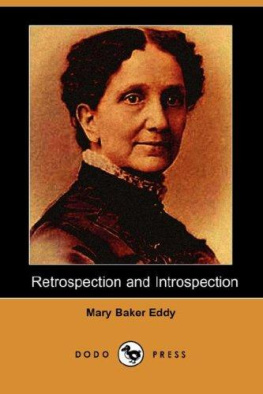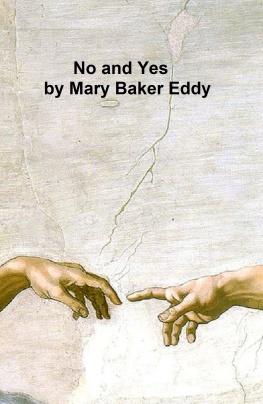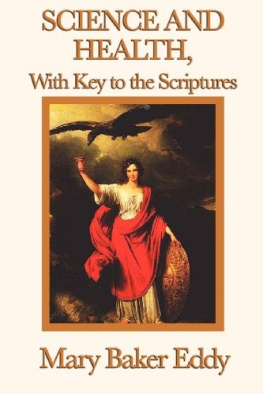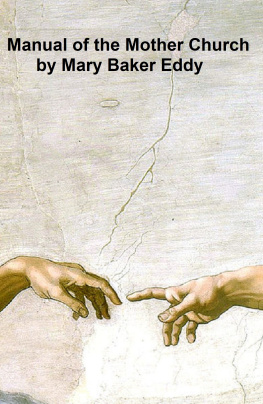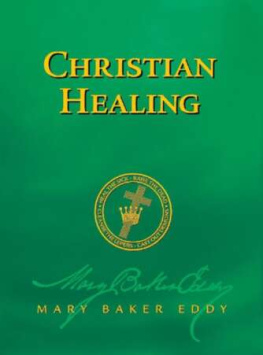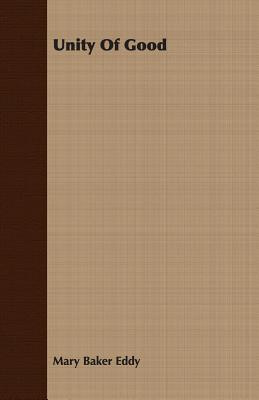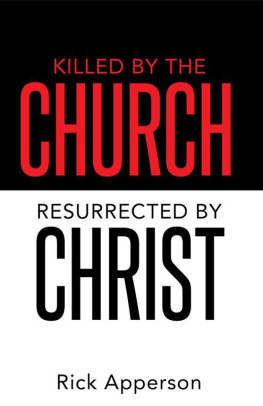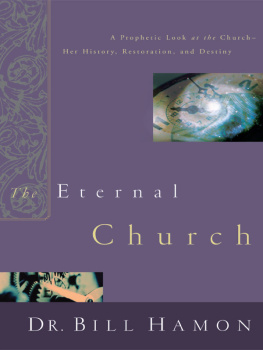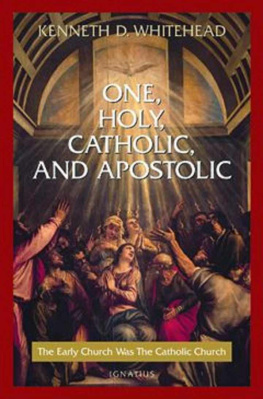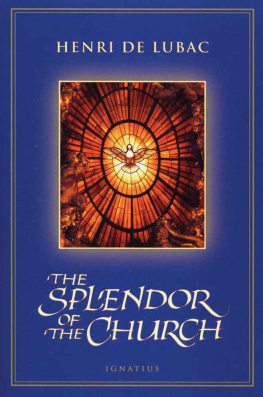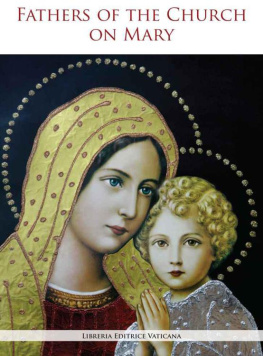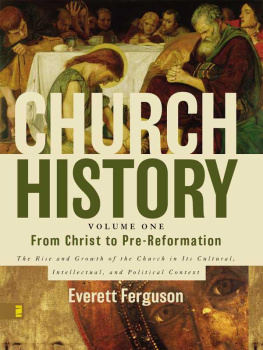Mary Baker Eddy - Retrospection and Introspection (Dodo Press)
Here you can read online Mary Baker Eddy - Retrospection and Introspection (Dodo Press) full text of the book (entire story) in english for free. Download pdf and epub, get meaning, cover and reviews about this ebook. year: 2007, publisher: Dodo Press, genre: Religion. Description of the work, (preface) as well as reviews are available. Best literature library LitArk.com created for fans of good reading and offers a wide selection of genres:
Romance novel
Science fiction
Adventure
Detective
Science
History
Home and family
Prose
Art
Politics
Computer
Non-fiction
Religion
Business
Children
Humor
Choose a favorite category and find really read worthwhile books. Enjoy immersion in the world of imagination, feel the emotions of the characters or learn something new for yourself, make an fascinating discovery.
- Book:Retrospection and Introspection (Dodo Press)
- Author:
- Publisher:Dodo Press
- Genre:
- Year:2007
- Rating:4 / 5
- Favourites:Add to favourites
- Your mark:
- 80
- 1
- 2
- 3
- 4
- 5
Retrospection and Introspection (Dodo Press): summary, description and annotation
We offer to read an annotation, description, summary or preface (depends on what the author of the book "Retrospection and Introspection (Dodo Press)" wrote himself). If you haven't found the necessary information about the book — write in the comments, we will try to find it.
Retrospection and Introspection (Dodo Press) — read online for free the complete book (whole text) full work
Below is the text of the book, divided by pages. System saving the place of the last page read, allows you to conveniently read the book "Retrospection and Introspection (Dodo Press)" online for free, without having to search again every time where you left off. Put a bookmark, and you can go to the page where you finished reading at any time.
Font size:
Interval:
Bookmark:
Project Gutenberg's Retrospection and Introspection, by Mary Baker Eddy
This eBook is for the use of anyone anywhere at no cost and with
almost no restrictions whatsoever. You may copy it, give it away or
re-use it under the terms of the Project Gutenberg License included
with this eBook or online at www.gutenberg.org
Title: Retrospection and Introspection
Author: Mary Baker Eddy
Release Date: September 23, 2005 [EBook #16734]
Language: English
*** START OF THIS PROJECT GUTENBERG EBOOK RETROSPECTION AND INTROSPECTION ***
Produced by Justin Gillbank, Josephine Paolucci and the
Online Distributed Proofreading Team at https://www.pgdp.net
Registered
U.S. Patent Office
Published by The
Trustees under the Will of Mary Baker G. Eddy
BOSTON, U.S.A.
Authorized Literature of
The First Church of Christ, Scientist
in Boston, Massachusetts
Copyright, 1891, 1892
By Mary Baker G. Eddy
Copyright renewed 1919 and 1920
All rights reserved
PRINTED IN THE UNITED STATES OF AMERICA
(Poem)
"" (Poem)
My ancestors, according to the flesh, were from both Scotland and England, my great-grandfather, on my father's side, being John McNeil of Edinburgh.
His wife, my great-grandmother, was Marion Moor, and her family is said to have been in some way related to Hannah More, the pious and popular English authoress of a century ago.
I remember reading, in my childhood, certain manuscripts containing Scriptural sonnets, besides other verses and enigmas which my grandmother said were written by my great-grandmother. But because my great-grandmother wrote a stray sonnet and an occasional riddle, it was no sign that she inherited a spark from Hannah More, or was her relative.
John and Marion Moor McNeil had a daughter, who perpetuated her mother's name. This second Marion McNeil in due time was married to an Englishman, named Joseph Baker, and so became my paternal grandmother, the Scotch and English elements thus mingling in her children.
Mrs. Marion McNeil Baker was reared among the Scotch Covenanters, and had in her character that sturdy Calvinistic devotion to Protestant liberty which gave those religionists the poetic daring and pious picturesqueness which we find so graphically set forth in the pages of Sir Walter Scott and in John Wilson's sketches.
Joseph Baker and his wife, Marion McNeil, came to America seeking "freedom to worship God;" though they could hardly have crossed the Atlantic more than a score of years prior to the Revolutionary period.
With them they brought to New England a heavy sword, encased in a brass scabbard, on which was inscribed the name of a kinsman upon whom the weapon had been bestowed by Sir William Wallace, from whose patriotism and bravery comes that heart-stirring air, "Scots wha hae wi' Wallace bled."
My childhood was also gladdened by one of my Grandmother Baker's books, printed in olden type and replete with the phraseology current in the seventeenth and eighteenth centuries.
Among grandmother's treasures were some newspapers, yellow with age. Some of these, however, were not very ancient, nor had they crossed the ocean; for they were American newspapers, one of which contained a full account of the death and burial of George Washington.
A relative of my Grandfather Baker was General Henry Knox of Revolutionary fame. I was fond of listening, when a child, to grandmother's stories about General Knox, for whom she cherished a high regard.
In the line of my Grandmother Baker's family was the late Sir John Macneill, a Scotch knight, who was prominent in British politics, and at one time held the position of ambassador to Persia.
My grandparents were likewise connected with Capt. John Lovewell of Dunstable, New Hampshire, whose gallant leadership and death, in the Indian troubles of 1722-1725, caused that prolonged contest to be known historically as Lovewell's War.
A cousin of my grandmother was John Macneil, the New Hampshire general who fought at Lundy's Lane, and won distinction in 1814 at the neighboring battle of Chippewa, towards the close of the War of 1812.
This venerable grandmother had thirteen children, the youngest of whom was my father, Mark Baker, who inherited the homestead, and with his brother, James Baker, he inherited my grandfather's farm of about five hundred acres, lying in the adjoining towns of Concord and Bow, in the State of New Hampshire.
One hundred acres of the old farm are still cultivated and owned by Uncle James Baker's grandson, brother of the Hon. Henry Moore Baker of Washington, D.C.
The farm-house, situated on the summit of a hill, commanded a broad picturesque view of the Merrimac River and the undulating lands of three townships. But change has been busy. Where once stretched broad fields of bending grain waving gracefully in the sunlight, and orchards of apples, peaches, pears, and cherries shone richly in the mellow hues of autumn,now the lone night-bird cries, the crow caws cautiously, and wandering winds sigh low requiems through dark pine groves. Where green pastures bright with berries, singing brooklets, beautiful wild flowers, and flecked with large flocks and herds, covered areas of rich acres,now the scrub-oak, poplar, and fern flourish.
The wife of Mark Baker was Abigail Barnard Ambrose, daughter of Deacon Nathaniel Ambrose of Pembroke, a small town situated near Concord, just across the bridge, on the left bank of the Merrimac River.
Grandfather Ambrose was a very religious man, and gave the money for erecting the first Congregational Church in Pembroke.
In the Baker homestead at Bow I was born, the youngest of my parents' six children and the object of their tender solicitude.
During my childhood my parents removed to Tilton, eighteen miles from Concord, and there the family remained until the names of both father and mother were inscribed on the stone memorials in the Park Cemetery of that beautiful village.
My father possessed a strong intellect and an iron will. Of my mother I cannot speak as I would, for memory recalls qualities to which the pen can never do justice. The following is a brief extract from the eulogy of the Rev. Richard S. Rust, D.D., who for many years had resided in Tilton and knew my sainted mother in all the walks of life.
The character of Mrs. Abigail Ambrose Baker was distinguished for numerous excellences. She possessed a strong intellect, a sympathizing heart, and a placid spirit. Her presence, like the gentle dew and cheerful light, was felt by all around her. She gave an elevated character to the tone of conversation in the circles in which she moved, and directed attention to themes at once pleasing and profitable.
As a mother, she was untiring in her efforts to secure the happiness of her family. She ever entertained a lively sense of the parental obligation, especially in regard to the education of her children. The oft-repeated impressions of that sainted spirit, on the hearts of those especially entrusted to her watch-care, can never be effaced, and can hardly fail to induce them to follow her to the brighter world. Her life was a living illustration of Christian faith.
My childhood's home I remember as one with the open hand. The needy were ever welcome, and to the clergy were accorded special household privileges.
Among the treasured reminiscences of my much respected parents, brothers, and sisters, is the memory of my second brother, Albert Baker, who was, next to my mother, the very dearest of my kindred. To speak of his beautiful character as I cherish it, would require more space than this little book can afford.
Font size:
Interval:
Bookmark:
Similar books «Retrospection and Introspection (Dodo Press)»
Look at similar books to Retrospection and Introspection (Dodo Press). We have selected literature similar in name and meaning in the hope of providing readers with more options to find new, interesting, not yet read works.
Discussion, reviews of the book Retrospection and Introspection (Dodo Press) and just readers' own opinions. Leave your comments, write what you think about the work, its meaning or the main characters. Specify what exactly you liked and what you didn't like, and why you think so.

